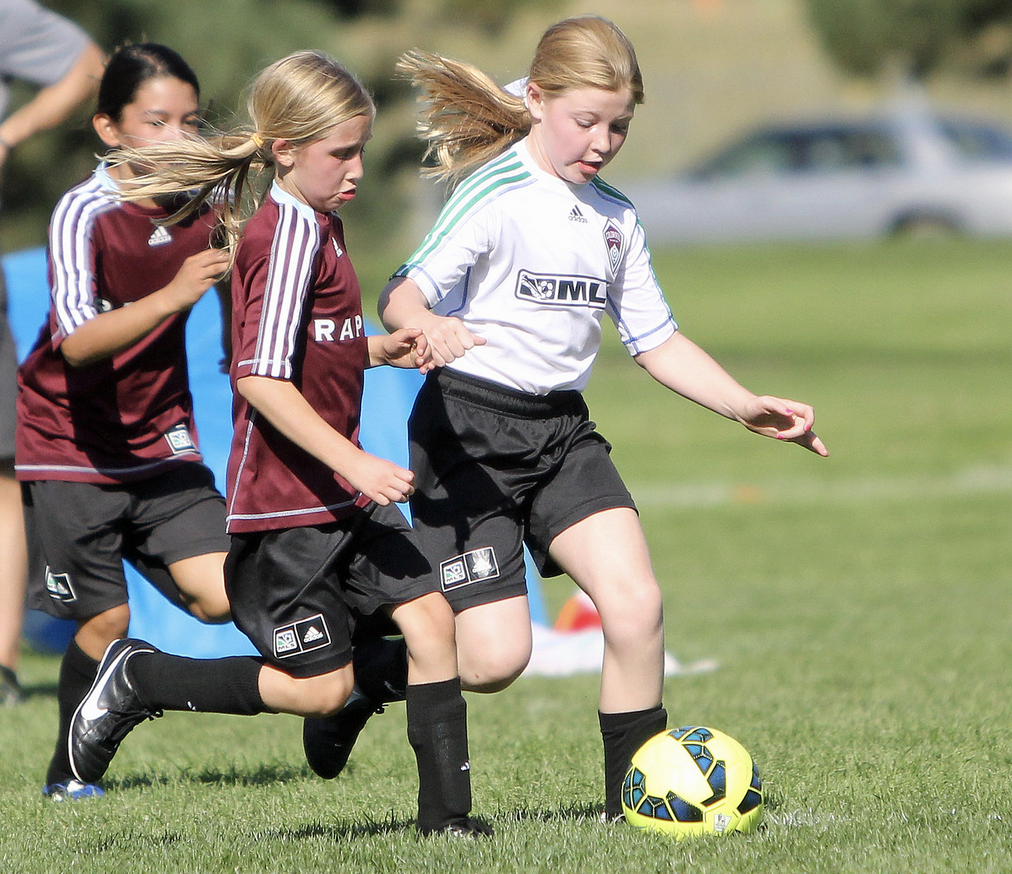
28 Jun Parents, You Can Fix the Youth Sports System
“We can do better…”
“The system is broken…”
“It’s become a business…”
“My kid never gets time off…”
I see the tweets splashed across my feed – the complaints that bash the system and feel like a giant middle finger through my computer screen. Parents are standing up to the nonsense behind their keyboards and in the comfort of their abodes.
As fiery as the tweets are, these are not enough to elicit change.
Though the intent is genuine and comes from a place of great care, the complaints are an unending abyss of all talk and no walk.
We can argue the system is broken, but who got us here? The evil producer that is youth sports?
Or the consumer?
As much as we want to point fingers at the system, parents, the consumers, are directly feeding it and enabling it more.
As much as we want to point fingers at the system, parents, the consumers, are directly feeding it and enabling it more Share on XIt’s not like one day the 19 billion dollar industry of youth sports is going to wake up and be like, “my bad…I won’t take your money anymore, let’s just give several months off to your child and let our money go down the drain.”
Nope.
It’s going to keep doing what it’s doing because the consumer continues to pump its most precious resource into it: money.
As a parent, you are the consumer.
So what are you going to do about it?
Maybe I’m Feeding It Too
Heck, maybe I’m just like you. As a performance coach who is in this industry, I am no way exempt from this discussion.
The other day, I had a crisis – a career existential crisis where I deeply pondered if kids and parents even need my services. ‘I shouldn’t even exist,’ I said out loud.
This is mainly for the younger kids who are in elementary school. Mind you, I love training this age group and I know I leave a mental and physical impact on them, but it also got me thinking who I’ve become:
I have now taken the place of the dad who should be chasing his daughters in the back yard. I have now taken the place of the mom who should be climbing on monkey bars with her children. I have now taken the place of neighborhood, unsupervised play.
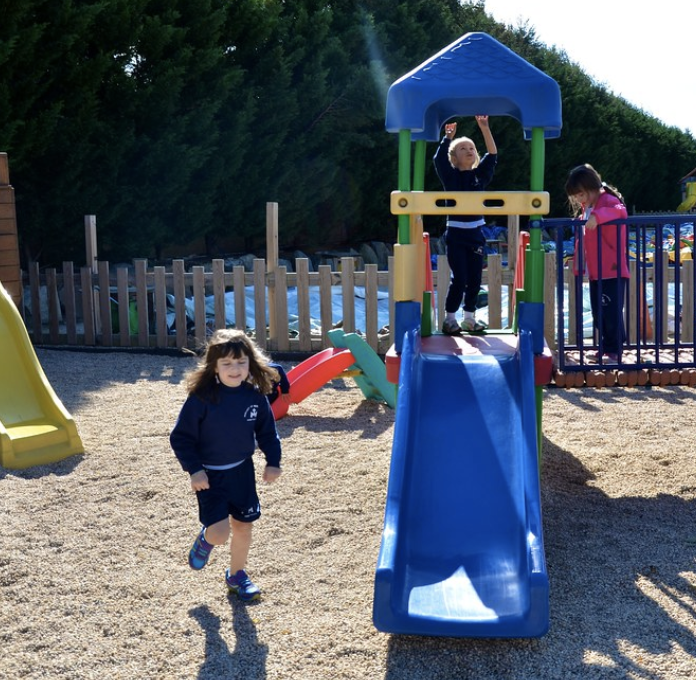
Sure, I build kids into resilient beasts that help them withstand these year-round shenanigans, sure I have a Master’s degree in this stuff, sure I have studied and coached long term athletic development for a decade, sure I can coach a session with energy and fun and exuberance, and sure I am downright blessed to work with such amazing kids, but what I do is still another structured obligation for them to meet.
Granted, for the older kids, they need me for the periodization, the load monitoring, the life coaching, the progressive overload, the power development, and everything in between. For these reasons, I understand my value and role in their lives as a performance professional who needs to keep them healthy.
But for everyone else, the ‘munchkins’, the elementary schoolers, I’m not so sure I’m needed.
Or maybe I am…
Kids Need Movement That Isn’t Their Sport
What propelled me to go into performance and leave the skills world behind was the ballooning injury epidemic in youth. I saw what kids needed, and it was to get them away from the thousands of sport specific reps year-round.
I saw an opportunity to expose them to the fundamental movements that are needed to develop robust bodies that aren’t full of deficiencies and imbalances.

As a skills trainer back in 2012 who was making $100 an hour, I realized I was part of the overuse, burn out and ACL reconstruction problem, which is why I made the shift to physical development full-time.
As a skills trainer back in 2012 who was making $100 an hour, I realized I was part of the overuse, burn out and ACL reconstruction problem, which is why I made the shift to physical development full-time. Share on XStill, when parents see their kid falling behind in their sport, the first person they call is the skills guru down the street. Still, when parents see their kid play one bad game, they assume they need more training in their regimen. Still, when parents see their kid make mistakes at age 8, they need the skills trainer to save the day who gives their kid all the answers.
Even today, parents beg me for skills training, and they’re flabbergasted when I tell them I no longer focus on it. Jaws drop even more when I say I can’t take them on as clients.
While I can give them skill work to practice at home, it’s more bang for buck for them to be doing the more intense, physical development work with me in sessions.
The speed technique, the deceleration work, and the eccentric muscle control to reduce chance of injury.
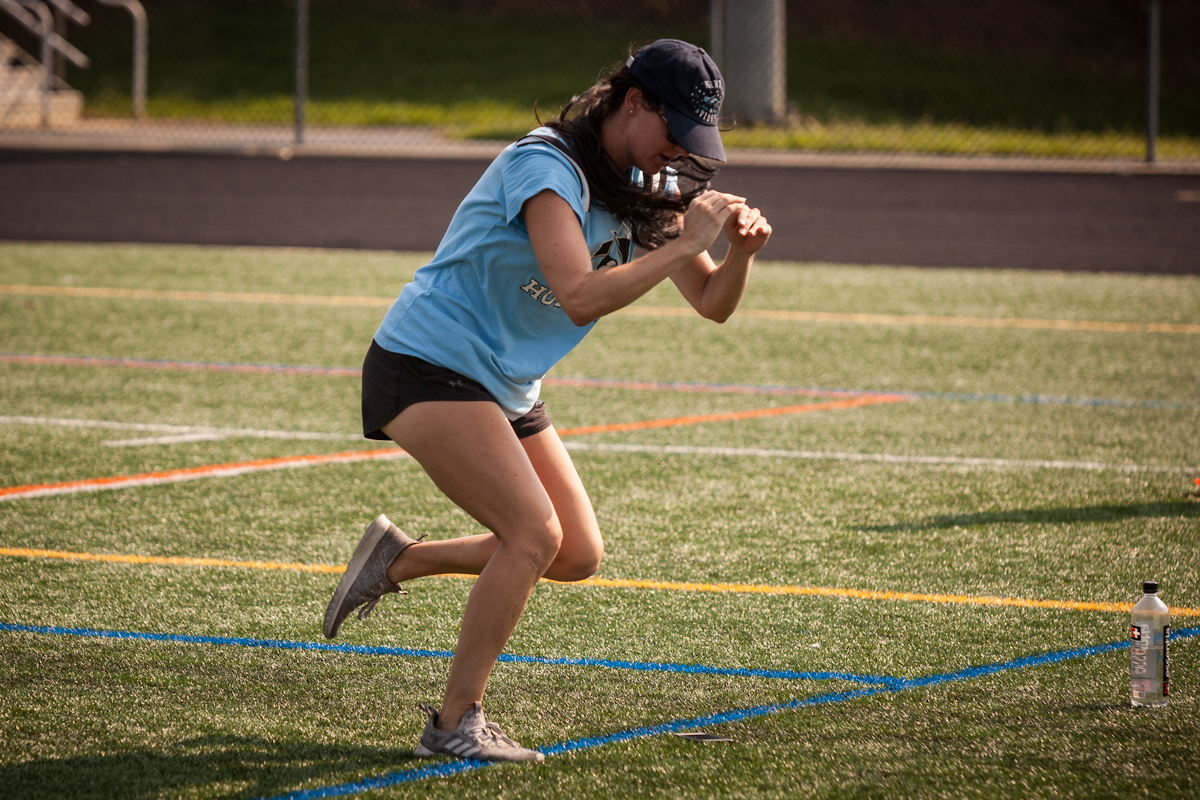
Parents, you need to realize that you are the answer, you hold the key to empower your child to figure it out, be malleable, be adaptable, and learn the natural way.
The child’s brain is nothing short of amazing, as the nervous system is highly adaptable and designed perfectly for ages 0-12 to figure out how to move the body and acquire skill. Check out a podcast on natural training methods in youth HERE:
The child's brain is nothing short of amazing, as the nervous system is highly adaptable and designed perfectly for ages 0-12 to figure out how to move the body and acquire skill. Share on XYou need to give your child credit. Their neural capacity is freaking amazing when you let them figure it out…unsupervised.
Stop. Coaching. Them. Up.
Growing up, I learned technical skills in my front yard. I learned how to juggle with a balloon, then a beach ball, then got over 1,000 juggles with a soccer ball. I learned how to shoot when my parents bought me a kick back goal. “Have fun,” they said, as I walked out into the front yard each day to teach myself striking.
I learned to be aggressive by wrestling with my brother and imitating Stone Cold Austin from WWE. I learned rapid reactivity playing Hide n Seek in the dark with my friends.
All of this self exploration fed my physical body and mind at a young age, and sparked my passion more and more each year for the game.
I then became the sharpest, fastest and most creative player on my college team at Johns Hopkins University – four year starter, leading scorer every season, Captain senior year, National Midfielder of the Year, 2x All-American, 2x Scholar All-American and Johns Hopkins University Outstanding Female Athlete.
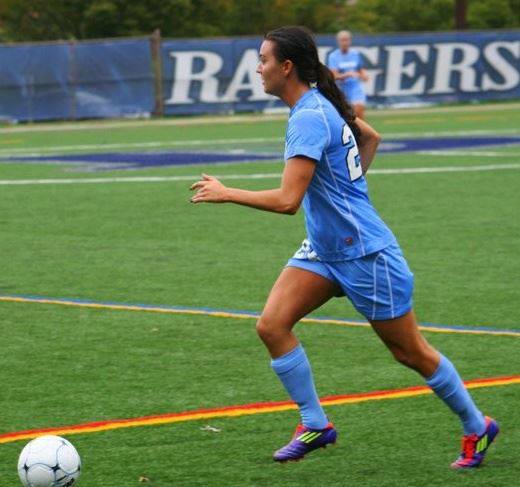
I didn’t learn my skills from rehearsed skills drills. I didn’t learn shooting by a trainer breaking it down in 100 steps. Truthfully, this all would’ve sounded like German to my 8-year-old self.
Nowadays, we’ve seen more and more skills trainers enter the industry to prove that their revolutionary method works, and they’re doing it differently than everyone else.
If they want to present a truly unique offering, incorporating general physical preparation, or an injury prevention program within their sessions would help them stand out above the noise.
If you’re going to see a skills trainer, at the very least, ensure they have knowledge in giving what your child needs to become faster, stronger and more resilient as they go through high school and college. Too, if they’re working with 7-11 year-olds they best be doing a lot of fun games without the soccer ball that develop spatial awareness, hand eye coordination, balance and stability.
If you're going to see a skills trainer, at the very least, ensure they have knowledge in giving what your child needs to become faster, stronger and more resilient as they go through high school and college. Share on XThe Injury and Burn Out Epidemics
As I wrapped up the tail end of my skills training career, I started noticing more injuries spiraling out of control. I saw middle school girls getting stress fractures. I saw soft tissue injuries. I saw ACL numbers increase in 12-15 year old girls. I saw highly preventable non-contact ACLs skyrocket.
In fact, the amount of ACL tears in kids has increased about 2.3% annually for the past two decades, according to American Academy of Pediatrics. Adding to the disaster, the amount of kids dropping out of sports by age 13 is around 70%, but the average child is quitting as young as age 11.
These numbers should be alarming for you to make a significant change in what you’re currently doing, and push your kid in a direction that steers away from the mob – a road that is far less traveled, yet so incredibly beneficial for your child’s growing body and brain.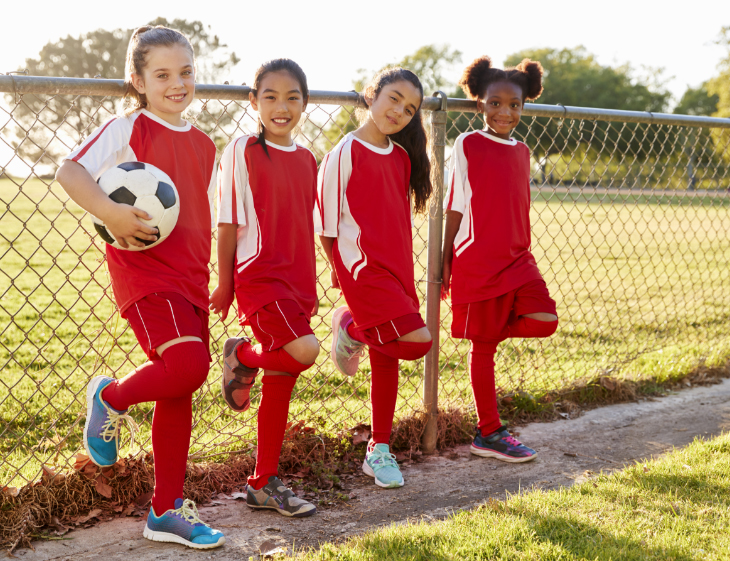
On the other side of this, you can bring your kid nourishment, movement variety, motor skill development, fun, and mental clarity away from the structured grind.
If this other side looks mystical and magical and you all know what your kid needs, then what the heck is happening?
Parent Peer Pressure
Peer pressure isn’t just exclusive to childhood. It permeates into adult life, sometimes tenfold, and goes without noticing.
Adults are just as susceptible to the darkness of peer pressure, especially when reputation, status, and bragging rights are on the line. The industry knows exactly how to feed on parent insecurities and is clever with this in their marketing.
Adults are just as susceptible to the darkness of peer pressure, especially when reputation, status, and bragging rights are on the line. The industry knows exactly how to feed on parent insecurities and is clever with this in their… Share on X“Don’t let your kid fall behind…”
“Get recruited…”
“Get the scholarship…”
These taglines are captivating to the parent who is living vicariously through his kid. They’re enticing to the parent who wants to do better than her neighbor. They’re alluring to the parent who wants to make the college commitment Facebook post.
Many hate to admit it, but the peer pressure is real, very real. It’s a stale pillow to swallow when you’re pressured to do what isn’t always right for your kid, all while tossing dollar bills at the industry.
Oh! That reminds me. The amount of money spent on club dues, skills lessons, and coaches like me is far more than what a kid will receive in scholarship money. Saying this would be a net zero is too nice, when realistically, it’s negative money in your pocket.
The amount of money spent on club dues, skills lessons, and coaches like me is far more than what a kid will receive in scholarship money. Saying this would be a net zero is too nice, when realistically, it's negative money in your… Share on XThere needs to be a greater reason to play sports and train.
Once you have purpose, you’re much more excited, and not resentful, about the investment in quality coaching, physical and mental development, and happiness for your child.
What’s The End Goal?
So what is your end goal for your child? Deeply ask yourself this question.
Do you want them to be another ACL statistic?
Do you want them to be another burn out study?
Do you want them to face overuse injuries that 80-year olds should face?
Get clear on what your intention is with all of this, then take action.
You Hold The Key
The youth sports industry rakes in billions of dollars, so it’s not changing until the consumer stops giving it money. Yes, that’s you.
No more 3v3 tournaments. No more skills trainers. No more year-round club due commitments.
The youth sports industry rakes in billions of dollars,
so it's not changing until the consumer stops giving it money. Share on X
Tweeting your heart out won’t do jack.
Complaining to your neighbors won’t either.
Expecting a profiting industry to change its ways and make less money…yeah right!
Your actions, rather than your words, plant the seeds of change.
Imagine a world where you said to the head coach of your child’s team:
“Here’s what my kid is going to do: he’s not going to play for your summer team. He’s not going to do your extra technical trainings. Rather, he’s going to take off from going to your practices, and instead, play with his friends, work on movement patterns, revamp his nutrition to nourish his body, go on vacation to swim and surf, read his favorite book on Messi, and come back in the Fall strong and ready to play again during the season and make an impact on your team.”
What coach would say no to this?
Alas, if you’re scared to take a stand, then understand that you’re telling the industry to behave exactly the way it is, and then they keep doing what they’re doing.
As a parent, it’s up to you to stand up without the fear of your kid getting benched. It’s up to you to set the boundaries, draw a line in the sand, and stick out like a sore thumb. It’s up to you to hold coaches accountable.
That’s when true change happens.


Shane MCLEAN
Posted at 00:55h, 29 JuneOhh my god. This is epic. Great work coach. I agree with every word.
erica
Posted at 00:53h, 30 JuneThank you, Coach!!!
Stephen
Posted at 21:52h, 17 JulyThis is beyond amazing. As a PT who works primarily with this population everything you said is 100% accurate.
erica
Posted at 21:53h, 17 JulyAppreciate you! Keep uplifting young athletes! <3